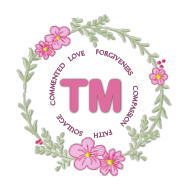The Power of Self-Love: Lessons from The Keys We Hold on How to Heal Yourself
Though most people believe self-love is the foundation of personal development, how do we cultivate it? How can we overcome the emotional barriers and negative self-perceptions that hamper us? Tamara Morgan’s Keys We Hold, which emphasizes the importance of self-love and internal healing, provides insightful guidance on this topic.
The author of The Keys We Hold uses a road map to direct readers toward the inner serenity and power we all possess. The book is about transforming from within, accepting who we are, and learning how to take deeper, more meaningful care of ourselves; it is not about external events. The main takeaway is clear: if you want to recover, you must first learn to accept yourself.
Understanding Self-Love
The concept of self-love might be difficult in a society where we are constantly told to look outside ourselves for praise. Many people have difficulty loving themselves because it is associated with arrogance or selfishness. However, The Keys We Hold redefines self-love by explaining how it is necessary for healing and development. It’s about recognizing your worth, forgiving yourself for past mistakes, and treating yourself with the same respect you do others—not about ego.
Tamara Morgan believes recognizing your worth is the first step on this journey. Self-love is about accepting your flaws and realizing that they do not define your worth, but rather, not aiming for perfection. Compassionate self-examination allows us to break the cycle of self-criticism that hinders us from progressing toward recovery.
The Role of Faith in Self-Love
The passage also emphasizes the importance of confidence, both in a greater force and in oneself. Self-love is entwined with the belief that you deserve peace, healing, and love. Tamara Morgan discusses how, through her journey, she gained strength in relying on the process and following the direction of faith. This confidence allowed her to accept her love for herself and overcome her self-consciousness.
Though doubt and insecurity can easily bind us, faith allows us to overcome them. When you feel you can recover, you open up the possibility of genuine self-love. The book explains that reestablishing your faith enables you to tap into a reservoir of strength that converts self-love from a theory to a real-life experience.
Healing Begins with Honesty
Accuracy is required in the healing process. The Keys We Hold emphasizes the importance of self-honesty in beginning the healing process. Tamara Morgan discusses confronting her inner realities and how it marked a turning point in her journey toward self-love. The book encourages readers to ask challenging questions, look in the mirror, and confront their emotions.
Self-love requires us to be truthful about our present and history. Avoiding the truth about ourselves will not help us recover. We can begin the healing process after acknowledging our obstacles and how they have influenced our lives. This candor is liberating; it allows us to rewrite our story and release old wounds.
Embracing Vulnerability
Learning to be vulnerable enhances self-love significantly. According to the book, healing is about opening up and allowing ourselves to feel, not creating barriers around us. Though many individuals struggle to accept vulnerability because it appears to be a weakness, the truth is that being vulnerable demands tremendous strength.
In The Keys We Hold, Tamara Morgan discusses how admitting vulnerability has been critical to her healing. She highlights the need to fully experience one’s emotions without judgment and use them to relate to and understand themselves. We can’t truly start to heal and accept ourselves unless we allow ourselves to feel satisfied, furious, or depressed.
Letting Go of the Past
The Keys We Hold teaches, among other things, the need to move on from the past. Self-love is about letting go of the weight and regrets of previous mistakes while appreciating yourself precisely as you are. The book gently reminds us that healing does not imply clinging to the past but accepting it and moving forward.
Morgan discusses her own fights with past sorrow in the book and how she improved by learning to let go. Many individuals caught in self-blame and guilt cycles will identify with this concept. Self-love allows us to release those duties, forgive ourselves, and make room for new growth.
Taking Action: Small Steps Lead to Big Change
The Keys We Hold proves that self-love is not a passive experience. This requires continuous activity. Healing begins with small steps, even if they need time and effort. Every action you take toward self-love brings you closer to calm and healing, whether self-care, setting boundaries, or simply treating yourself respectfully.
Tamara Morgan’s book is filled with practical advice for cultivating everyday self-love. She encourages individuals to start where they are, take it one day at a time, and believe that the road will open as it should.
Conclusion
Self-love is a powerful therapeutic tool. Tamara Morgan explains in The Keys We Hold that we can find tranquility and power within ourselves by loving ourselves, being honest, accepting our flaws, and letting go of the past. Healing starts with self-love; when we love ourselves, we pave the way for a life full of opportunities, growth, and happiness.

